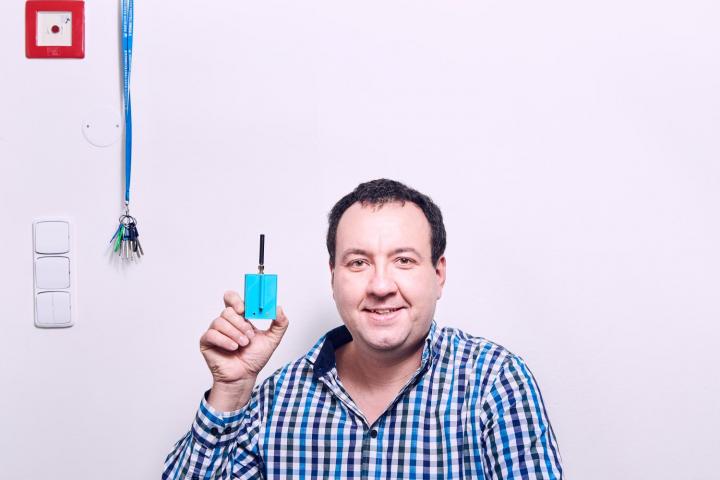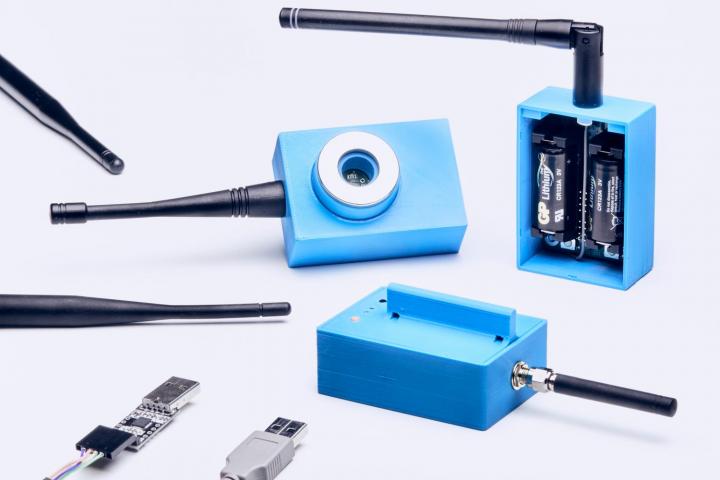
The difference from existing standard energy reading solutions is that the innovative "En-Meter M" probe does not have to be connected to the electrical circuit and can be used to monitor electricity consumption virtually anywhere and anytime.
"We use non-contact sensing with a magnetic sensor near the power cord of any appliance, group of appliances or the entire power branch. The sensor is attached to the power cable and easily mechanically fastened with eg tape. It has its own battery power supply and sends data wirelessly via the global IoT network Sigfox, or the LoRa network. The data can then be viewed on a web portal, including conversion to the estimated consumption of electricity, "describes the principle of operation of the new probe doc. Jiří Vodrážka, Head of the Department of Telecommunication Engineering, FEE CTU, whose team has long been involved in Internet of Things (IoT) technologies and communication systems for smart grids and their measurement (Smart Metering).
The main developer dr. Zbyněk Kocur adds: “The uniqueness of our solution lies, among other things, in the ability to configure the user mode of sending data and choose the method of their evaluation. We anticipate use by a number of companies and institutions that need to have an up-to-date overview of electricity consumption and data to optimize consumption. Our solution allows them to reduce costs by, for example, being able to direct their energy supply to a time of day when the electricity rate is more cost-effective. ”
At the moment, the probes are being tested in Řež near Prague, where the developers are verifying the monitoring of the operation of street lighting lamps. They also test the monitoring of consumption with the possibility of detecting unwanted activity in the monitored object. "Monitoring a whole group of lamps with one device will help us to turn ordinary lamps into something that is close to intelligent lighting," says the deputy mayor of Husinec-Řež, Ing. Tomas Pfeifer.
The probe from FEE developers is thus becoming a promising component in the concept of "smart cities", but it also has the potential to be used in industry to monitor various machines and monitor their activities, eg in predictive maintenance. Mass deployment and serial production would then significantly reduce the current price of the probe, which is at the level of CZK 4,000.
The solution is protected by the utility model "Equipment for remote contactless monitoring of the activity of electrical appliances" (Registration No. 34434). The research is co-financed from the oEuropean Union perational program Prague - the growth pole of the Czech Republic. More information is available at https://comtel.fel.cvut.cz/cs/projekty/inteligentni-efektivni-sledovani-odberu-energie
